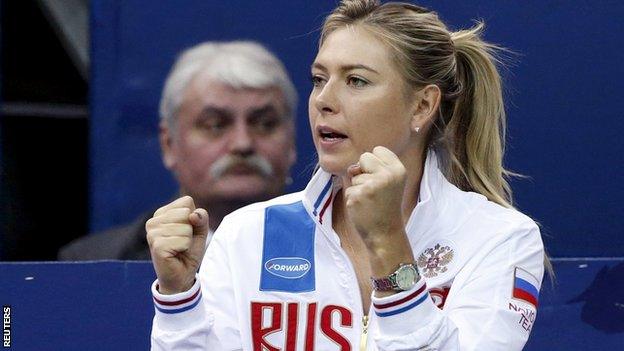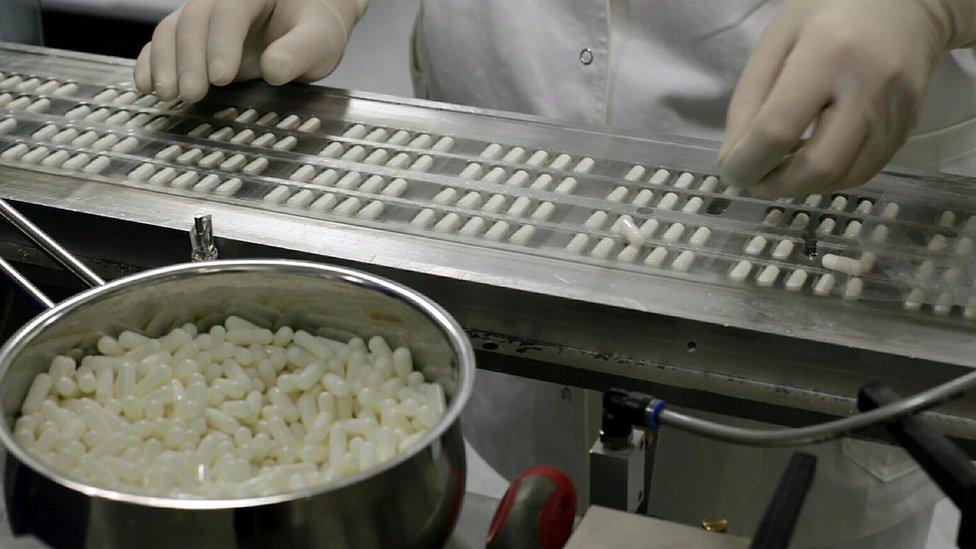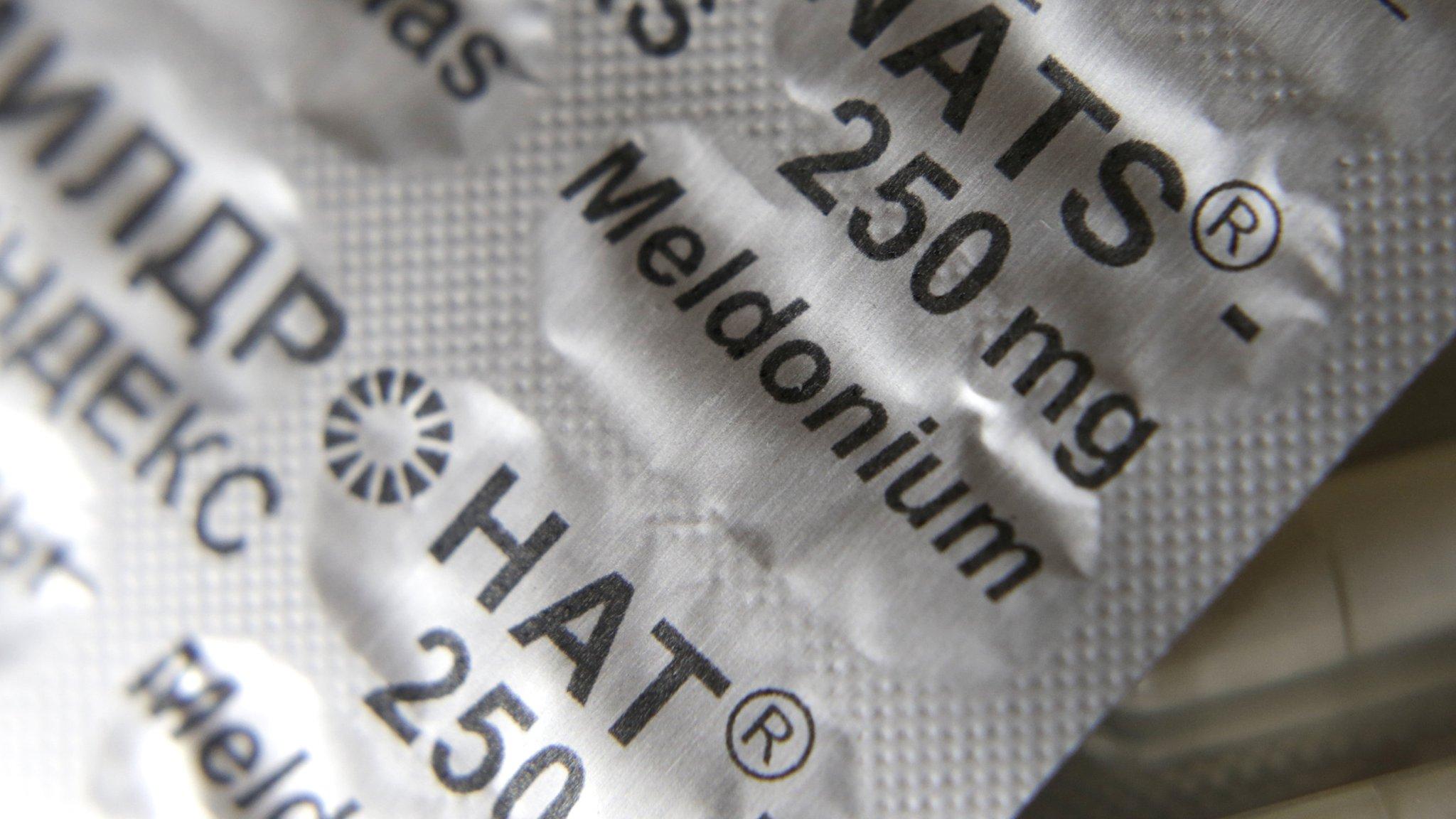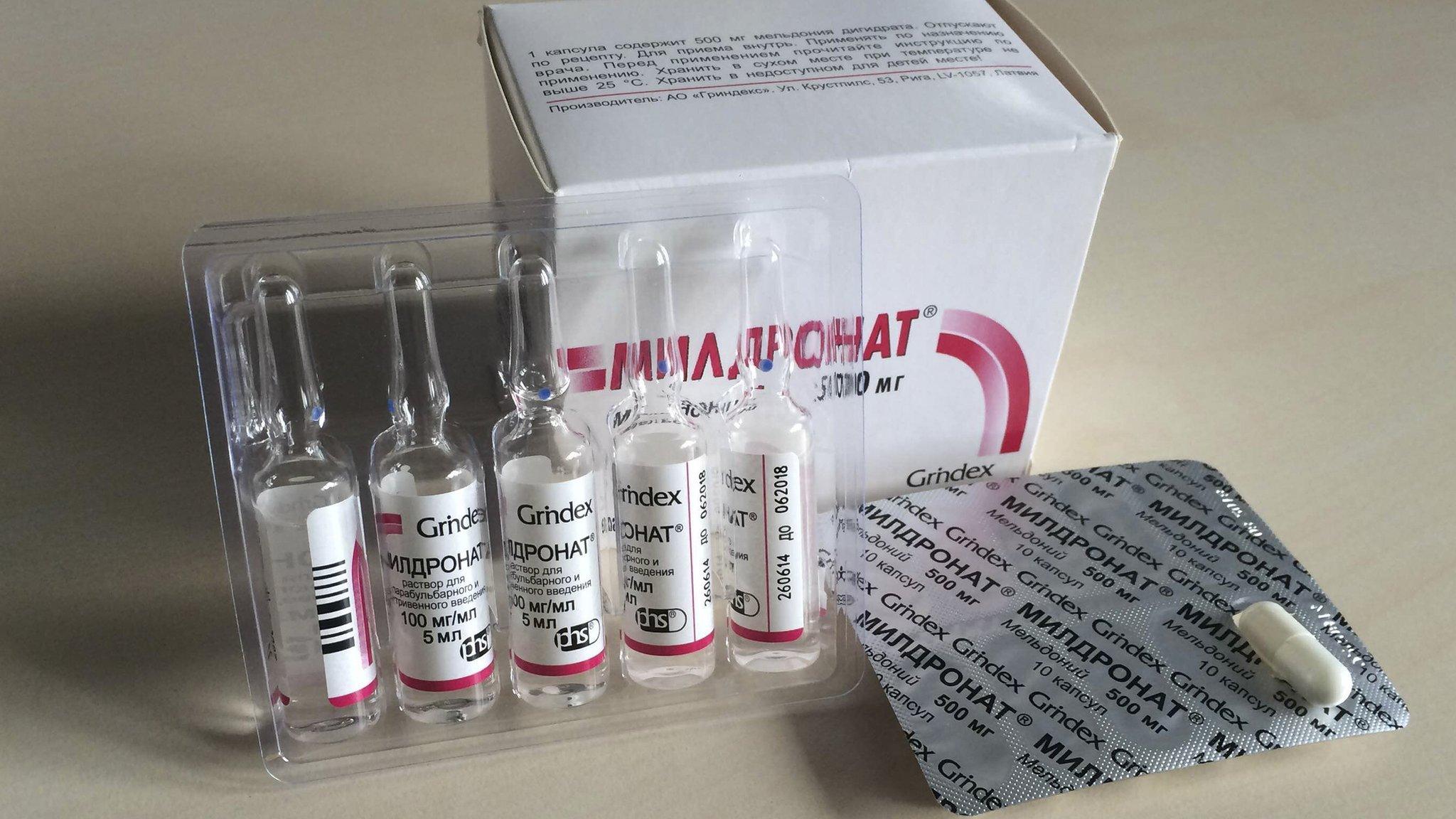Meldonium: Maria Sharapova faces hearing despite new Wada guidance
- Published

Maria Sharapova is a five-time Grand Slam champion
Maria Sharapova will face a hearing for testing positive for meldonium, despite the World Anti-Doping Agency issuing fresh guidance on the banned substance.
Wada said on Tuesday athletes who tested positive for meldonium before 1 March could avoid bans.
But the International Tennis Federation said Sharapova's case will proceed.
The Russian tested positive for the drug at this year's Australian Open, after it was added to Wada's banned substances list from 1 January.
Wada's change in stance is because of a "lack of clear scientific information on excretion times", meaning the agency has so far been unable to establish how long it takes for the drug to clear the human body.
Sharapova's racquet manufacturer Head stood by the Russian after she initially confirmed the positive test on 8 March, and the company has now called for an amnesty in meldonium cases.
"It is now quite clear that Wada made the decision to ban meldonium based solely upon the alleged prevalence of use among Eastern European and Russian athletes," said head chief executive and chairman Johan Eliasch.
"This highlights a wholly flawed decision-making process by Wada whereby the ban on meldonium has no justification.
"Until clinical testing is undertaken to prove that meldonium has indeed performance-enhancing potential, Wada should provide amnesty to athletes who had been taking the drug at the direction of a doctor for a proven medical condition, if not all athletes."
- Published13 April 2016

- Published25 March 2016

- Published8 March 2016

- Published8 March 2016
- Published19 July 2016
